The programme for ICUP 2017 to be held in Birmingham, UK between 9-12 July 2017 is now available. Whilst the official deadline for the early bird discount is 31 January, it will be worth checking the website to see if it has been extended.
Held only every three years, and at locations around the world, this time it is the turn of the UK to host the 2017 International Conference on Urban Pests (ICUP) in Birmingham. Likely to attract a large international contingent, UK delegates are strongly recommended to attend as this is a unique opportunity to rub shoulders, on home soil, with this collection of international experts. Early bird registration ends on 31 January, but it is worth checking the site to check if it has been extended..
| Chaired by Dr Matthew Davies, the Organising Committee has reviewed an extremely large number of abstracts submitted by potential authors and the preliminary programme is now available. Conference presentations Mosquitoes and houseflies are also included in this plenary session, as is a paper addressing environmental light conditions and the effects on aquatic insects. Over the next two and a half days concurrent sessions will run which include 60 sessions delegates can pick from, plus 38 poster papers. The programme covers a great spread of speakers from all over the world – USA, UK plus many countries from continental Europe, Brazil, Colombia, Japan, Malaysia, Taiwan, Philippines, Russia, Iran, Pakistan and Australia. |
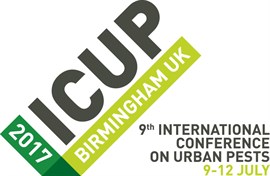
|
|
| Full array of presentations from world experts ICUP events are unique as they attract independent urban pest experts from around the globe. Potential delegates would need to travel extensively to hear, and also to meet and discuss with, these leading authorities forecast to be present. As to be expected bed bugs and rodents feature prominently with three dedicated sessions each. Within the bed bug sessions are papers reviewing the current problems encountered from an overall management perspective, the role of international travellers, to the use of heat, colour preferences, chemical ecology and the use of monitors. Resistance to pyrethroid and carbamate insecticides is discussed plus the emerging reduced susceptibility of this species to neonicotinoids.
There is also to be a full session on rodenticide resistance during which Mark Hoppá© (Chair IRAC Public Health Team, Syngenta Crop Protection) will discuss the latest recommendations regarding resistance management. Mice also feature with papers debating control within the food industry, the use of ultra-sonic devices and the use of two new alternative rodenticide actives. Flying insects Two sessions cover insects and developments in the field of medical entomology and rounding the sessions off are presentations concerning termites, new concepts in cockroach baiting, IGRs for cat fleas and pests within museums. Various methods of both chemical and non-chemical control against a variety of pest species make up a further two sessions. Speakers from the UK Kayleigh Hansford from Public Health England will examine the significance of the introduction of the brown dog tick into the UK. ICUP conference chairman, Matthew Davies of Killgerm Chemicals, will detail his new findings regarding non-biting flies and disease transmission. Another ICUP organiser also taking to the floor is poster manager, Matt Green of Rentokil, who will discuss the role of LEDs in the design of ultra-violet light flytraps for house fly monitoring and control. Workshops and discussion sessions |
||
| Poster session Virtually the whole afternoon on Tuesday 11 July is given over to poster presentations. Whilst the posters will be on display for the whole event, during this specific poster session, authors will stand alongside their poster display enabling all those interested to discuss their research work face-to-face. All inclusive registration fee |
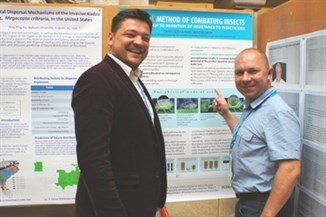 The poster presentations enable The poster presentations enableface-to-face discussion |
|
| Also included are breakfasts and lunch throughout the conference, the proceedings (in print and USB format), conference bag and peripherals, such as a pen and notebook, conference gift mug, plus the great-looking conference t-shirt, as well as Wi-Fi access.
Don’t miss early bird registration A special student rate is also available at only £324. |
||
|
|
|
|
|
The ICUP 2017 conference website has full details and is updated regularly. On the central ICUP website interested parties can view all presentations from the previous conferences. This will be the ninth in the series of ICUP conferences. The previous conferences have been held in Cambridge, England (1993), Edinburgh, Scotland (1996) Prague, Czech Republic (1999), Charleston, USA (2002), Singapore (2005) Budapest, Hungary (2008), Ouro Preto, Brazil (2011) and Zurich, Switzerland (2014). |
||


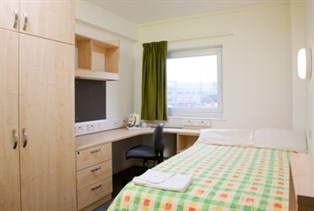
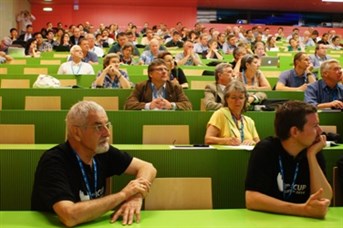 As in Zurich 2014, ICUP events always attract a wide international audience
As in Zurich 2014, ICUP events always attract a wide international audience Birmingham – an easy place to access for all delegates © Jimmy Guano
Birmingham – an easy place to access for all delegates © Jimmy Guano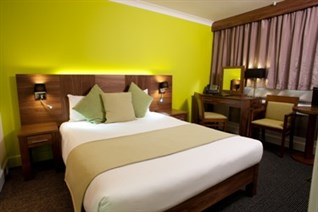 Business class hotel accommodation
Business class hotel accommodation